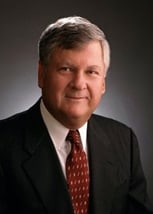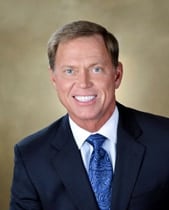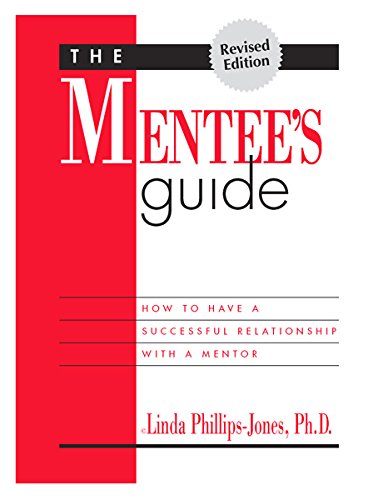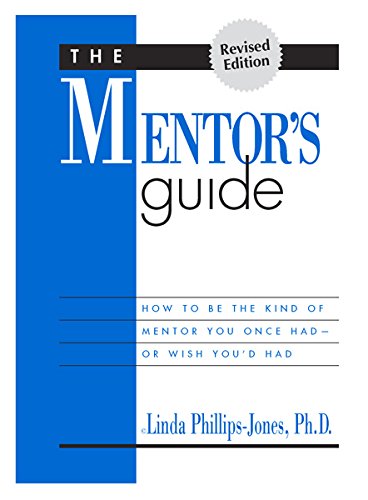
Executive Mentor Program
The School of Business & Leadership Executive Mentor Program helps prepare students for successful careers in business by integrating academic learning with real-world experiences. We are pleased to offer a mentor program where graduate students are partnered with seasoned business professionals to establish connections in the business world and gain valuable insights into issues such as career choice, networking skills, and professional development. Mentors are paired with students based on academic and career fields, common interests, or availability. Mentors and mentees are matched for at least 6 months during which they are encouraged to meet monthly (in-person or remotely).
The purpose of the Executive Mentor Program is to prepare students for successful careers in business, by integrating academic learning with real-world experiences, and to become a model for workforce readiness and advancement. Mentors provide mentees with valuable advice, serve as a sounding board, share significant experiences, and provide constructive feedback. Mentors and mentees are administratively paired based on the information the mentor and mentee share in their application profiles.
The goals and objectives of the executive mentor relationship:
- Help identify career paths for students and support students’ personal and professional growth.
- Provide an opportunity for students to learn and practice professional networking skills.
- Equip students with the understanding and tools to make ethical and informed decisions.
- Shape students into confident graduates with excellent leadership, communication, critical thinking, professionalism, and other skills important to advance in the world of work.
- Help students identify and pursue opportunities for employment or advancement related to their degrees.
Thank you for your interest in the School of Business & Leadership Executive Mentor program. Your willingness to share your time and expertise is a valuable service to Regent University, the mentees that you will work with, and the communities they represent.
The Executive Mentor Program is structured and designed with the limited schedule of a hard-working executive in mind, and the time commitment required is typically no more than an hour or two per month. Volunteer mentors are executive-level business people who agree to communicate with students at least once per month for about 6 months.
Serving as an executive mentor provides an opportunity for business executives to share their professional experience, knowledge, and skills with students who are preparing to enter the business world. The mentor will act as a coach and role model to support a student with his or her personal and professional growth. The program provides a golden opportunity for executives to counsel and influence the next generation of business leaders.
Being a mentor provides personal satisfaction as well as the ability to increase the workforce readiness of future recruits. As mentors, executives help students clarify and achieve their personal and career goals, through sharing support, along with offering spiritual friendship and professional advice. We encourage mentors and mentees in the Executive Mentor Program to meet with each other at least once per month (in-person meeting, phone, or video chat) for six months. At the start of the mentorship, each pair determines the specific expectations to which they will hold themselves accountable. Mentors may work with one or more mentees at a time depending upon their interest and availability.
- Mentor training
- Annual recognition event
- Complimentary admission to the School of Business & Leadership Annual Research Roundtables
- Be available to students for monthly meetings at the workplace, other business venues, or virtually (phone, ZOOM, Skype, etc.)
- Commit to at least 6 months of engagement with assigned mentee(s)
- Provide support and encouragement
- Help students clarify goals
- Offer guidance and constructive criticism
- Provide introductions and access to key business circles
- Demonstrate qualities successful business leaders possess
As a mentor, you will choose how you share your experiences and insights with your mentee. Here are some guidelines that you may wish to follow to ensure that your mentorship experience is mutually rewarding.
- Set goals and expectations early. The only guideline that all mentors are expected to follow is that the mentor/mentee relationship stays career and academically focused. In conjunction with the student, decide if you want to have regular meetings or communicate with each other as needed. We highly recommend working with the student to develop goals for the experience. Below are goals commonly held by mentors:
- Increase exposure to your career field and industry.
- What professional associations would you recommend?
- Are there conferences that they should attend?
- What blogs and publications should they be reading?
- Are there terms or acronyms that they should know?
- Develop networking skills to establish professional contacts.
- Improve professional communication skills.
- Resume development.
- Increase exposure to your career field and industry.
- Build rapport. Active listening, being responsive to contact attempts, and providing a safe, supportive environment where the mentee feels comfortable asking questions. Be honest but respectful. Highlight your positive academic and career experiences while making them aware of the struggles.
- Actively engage and recognize mentoring opportunities. If time and geography permit, participate in campus-sponsored events with your mentee. If appropriate, invite them to shadow you at work. Help them prepare for upcoming interviews. Take note of their communication skills and etiquette and be prepared to work with them on it. A positive mentoring relationship is more about the accumulation of many small pieces of useful advice and support than it is about a single, life-changing experience.
- It is NOT your responsibility to take a direct role in job placement. Students are advised that while you are able to connect them to significant networks, they should not have an expectation to find a job at your organization.
We ask that executive mentors possess more than 7 years of business and professional experience, business ethics, and integrity and a network of friends, colleagues, and co-workers that can be called on as resources to assist the student. Mentors must also be willing to commit to regular communication and support of their mentee for six months.
Interested professionals will need to complete the Executive Mentor Application. Applications are accepted year-round.
Our mentors include a diverse range of seasoned business professionals. Below is a sampling of some of the mentors volunteering in our Executive Mentor Program. We are grateful for their commitment to serve, along with the many other highly respected leaders in this program who are giving their time and expertise to better prepare students for successful careers.

Anne Beiler
Founder, Auntie Anne’s Pretzels
Author & Speaker
Anne Beiler began twisting pretzel in 1987 and grew a single farmer’s market stand into Auntie Anne’s Inc. — the world’s largest hand-rolled soft pretzel franchise. Her professional success, however, was forged after years of darkness, depression and despair brought on by the death of her nineteen-month-old daughter.
Bieler’s personal story, and her entrepreneurial insights, have been featured on TV shows like Secret Millionaire, The Oprah Winfrey Show, Good Morning America, as well as highlighted in numerous publications, including Fortune, Guideposts and Nation’s Restaurant News.
Beiler is among an elite group of women that have founded national companies in America and is one of an even smaller number that has owned an international franchise company. She was named one of America’s 500 Women Entrepreneurs by Working Women and Entrepreneur of the Year by Inc. magazine.
In 2005, Beiler sold Auntie Anne’s and authored the business memoir, Twist of Faith. Her latest book, The Secret Lies Within, offers an inside out look at trauma and how to overcome through sharing your story.
Today, Beiler speaks to audiences around the world, inspiring people with her authentic stories and life experiences. Her mission is to help encourage others to overcome themselves and become the more they desire. Beiler and her husband live in Texas. They have two children and four grandchildren.

David L. Bernd
Chief Executive Officer, Sentara Healthcare
For more than 20 years, David L. Bernd served as the chief executive officer of Sentara Healthcare — a $5.2 billion integrated health system headquartered in Norfolk, Virginia, comprised of 12 acute-care hospitals with health plans covering 450,000 lives, 950+ provider medical groups, and medical staffs of approximately 3,700 physicians. Under his leadership, Sentara developed a national reputation for safety, quality and innovation. U.S. News & World Report, for 15 consecutive years, has ranked Sentara facilities and programs among America’s Best Hospitals.
In 1973, Bernd received his Master of Hospital & Health Administration from the Medical College of Virginia. From 1972-73, he served his residency at Norfolk General Hospital (now Sentara Norfolk General Hospital). Bernd served as assistant administrator at Norfolk General Hospital from 1973-79 when he was named administrator and was the 1984 recipient of the American College of Hospital Administrators’ Robert S. Hudgens National Young Hospital Administrator of the Year Award.
In 1985, Mr. Bernd was named executive vice president/chief operating officer of Sentara Health System and president of Sentara Hospitals-Norfolk. In December 1994, he was named chief executive officer of Sentara Health System (now Sentara Healthcare) and assumed the role in March 1995.
He resides in Virginia Beach, Virginia, with his wife, Helen

Bryan Stephens
President & CEO, Hampton Roads Chamber of Commerce
Bryan Stephens has extensive leadership and business experience. Before assuming his current position, he served as president and CEO of Kalmar in San Antonio, Texas — a $250 million a year manufacturer of material handling equipment.
Stephens also has a distinguished 28-year career in the U.S. Army and retired as a colonel. In the Army, he served in a variety of progressive operational leadership and command positions. His last assignments included infantry brigade commander and division chief of staff (10th Mountain Division (LI) Fort Drum, New York) and chief of operations and chief of staff (Joint Warfighting Center, USJFCOM in Suffolk, Virginia). His military qualifications include, among others, ranger, airborne, pathfinder, air assault, and joint staff officer.
Since taking the helm of the Hampton Roads Chamber, Stephens has led the Chamber to a U.S. Chamber of Commerce five-star accreditation, an achievement only obtained by the top 1% of the over 7,200 Chambers of Commerce in the Nation.
In 2016, Stephens was awarded the Chamber Executive of the Year for the Commonwealth of Virginia by the Virginia Association of Chamber of Commerce Executives. In 2017 and 2018, he was ranked among the Top 25 Most Powerful People in Hampton Roads by Inside Business.
We are delighted to provide our students with access to a strong business community, which provides for a vast network of accomplished, remarkable mentors. Being an SBL student mentee is an opportunity to experience, understand, and learn from an executive mentor’s professional experience, knowledge, and skills. This one-on-one mentor relationship allows each mentee to receive individual attention and guidance related to career aspirations, professional development, and networking needs.
- Clarify career goals
- Become ready for the workforce
- Increase business connections
- Heighten professional development
- Improve networking skills
- Enhance opportunities for career success and impact
- Must be a graduate student in the School of Business & Leadership
- All students must complete the Student Executive Mentor Program application. The selection process for this competitive program might include an interview. Other possible considerations include; community service, prior academic and leadership experience, willingness to be an active and engaged participant, and the ability to maintain academic goals.
- Participants must complete the Executive Mentor Program Orientation
- Students drive the mentor-mentee relationship and must take an active role in contacting their mentor and planning/coordinating meeting times
- Students must commit to meeting monthly at the mentor’s workplace, other business venues, or virtually (phone or online via SKYPE or ZOOM)
- Commit to at least 6 months of engagement with an assigned mentor
- If possible, attend events hosted by the Executive Mentor Program (i.e., Meet & Greet/Networking Event; Annual Recognition Ceremony; etc.)
A professional executive mentor provides students with insight into building a career in their area of interest. Mentors can help you keep up to date about changes and advances in their field, show you how the curriculum can benefit your future career, recommend elective courses to take, publications to read, blogs to follow, and select extracurricular activities that will help develop your resume. You should go in knowing that the mentor/mentee relationship is one of give and take. The benefit that you gain from your mentor’s knowledge and experience depends on the amount of energy and enthusiasm that YOU bring to the relationship. Students participating in this program will be expected to follow some simple guidelines to help promote a mutually rewarding experience:
- Contact your new mentor within 1 week of being notified of the pairing. You should take responsibility for maintaining the relationship by making regular contact with your mentor. Keep your mentor up to date on your academic progress, employment availability, and any shifts in academic or career priorities.
- Be flexible and be prepared to commit to one to two hours per month for at least 6 months. Some mentors and mentees will meet regularly, others, more sporadically. Be upfront about your scheduling restrictions and do your best to be accommodating to your mentor.
- Be proactive and honest. Let your mentor know what you hope to gain from the experience as well as your goals, both personally and professionally. Come into the process with ideas that can help your mentor give the best advice possible and questions that can help guide conversations.
- Be open to new ideas. A mentor is a guide, a listener, a coach, and a friend. They will give you feedback that helps to identify strengths and weaknesses while assisting in the creation of action plans that address areas in need of improvement.
- Be professional and respectful. Mentors have made a commitment of time, wisdom, and expertise. They are willing to share their hard-earned experiences for your benefit. Although they are professionals who can help you to network, it is not the responsibility of your mentor to take a direct role in job placement. Do not come into the relationship expecting to find a job at your mentor’s organization.
Regent University’s Career Services is your primary resource for career assessments, resume building, interview preparation, career events, and applying for jobs and internships through Handshake. We are readily available to help you explore majors, discover your career path, and connect you with employer interviews and internship opportunities.
Assistance is offered in the following areas and is a vital resource to our program:
- Career Assessments: Discover your personality, interests, and best-fit job possibilities.
- Internships: Find out how your school guides you on receiving credit for an internship placement.
- Resume Building: Customize your resume to fit your skills and reach your audience.
- Interview Preparation: Learn how to prepare and increase your interview skills.
- Career Events: Connect with our team of career professionals.
- Handshake: Apply for jobs and internships.
Learn more about Career Services by clicking below.

Download eBook

Download eBook
- BarOn Emotional Quotient-Inventory (BarOn EQ-i®) – Emotional Intelligence
- Beatitude Scale. Seven scales to measure the seven beatitudes in leaders. In Bocarnea, M. C., Reynolds, R. A., & Baker, J. D. (Editors) Online instruments, data collection, and electronic measurements: Organizational advancements.
- BelemLeaders Podcasts See E6, E9, E14
- CliftonStrengths Talent Assessment
- Evaluating Employee Performance through Christian Virtues (Christian Faith Perspectives in Leadership and Business), Authors: Bocarnea, M., Henson, J., Huizing, R., Mahan, M., & Winston, B., Publisher/Date: Palgrave Macmillan, 2018
- Leadership Challenge – The Leadership Challenge®: Leadership Development Solutions
- Leadership Coaching: Developing Agility, Resilience, and Empathy during COVID-19 Password 12Z.?BE1
- Personality Assessment Inventory and Professional Development | The Myers-Briggs Company
- PRO-D Multidimensional Assessment
- Romans 12 Motivational Gift Test
Contact us at sblexecmentor@regent.edu with questions or to discuss the program in more detail.

